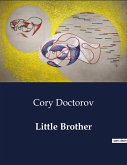The literature of Botany can be traced back to a quite respectable antiquity, to the period of Aristotle (b.c. 384-322) who seems to have been the first to write of plants from the truly botanical point of view. Unfortunately, his special treatise on plants¿¿¿¿¿¿¿ ¿¿¿¿ ¿¿¿¿¿¿is lost; and although there are many botanical passages scattered throughout his other writings (which have been collected by Wimmer, Phytologiae Aristotelicae Fragmenta, 1836), yet none of them gives any indication of what his ideas of classification may have been. An echo of them is perhaps to be found in the works of his favourite pupil, Theophrastus Eresius (b.c. 371-286), who among all his fellows was the most successful in pursuing the botanical studies that they had begun under the guidance of the master. Theophrastus left behind him two important, though incomplete, treatises on plants, the oldest that have survived: the more familiar Latin titles of which are De Historia Plantarum and [De Causis Plantarum]. The latter is essentially physiological, touching upon agriculture to a certain extent: the former is mainly morphological, structural, descriptive, and it is here that the first attempt at a classification of plants is to be found. In writing the Historia, Theophrastus was endeavouring, as a Greek philosopher rather than as a botanist, to "give account of" plants; and in order to do so he found it necessary to arrange them in some kind of order.
Hinweis: Dieser Artikel kann nur an eine deutsche Lieferadresse ausgeliefert werden.
Hinweis: Dieser Artikel kann nur an eine deutsche Lieferadresse ausgeliefert werden.








